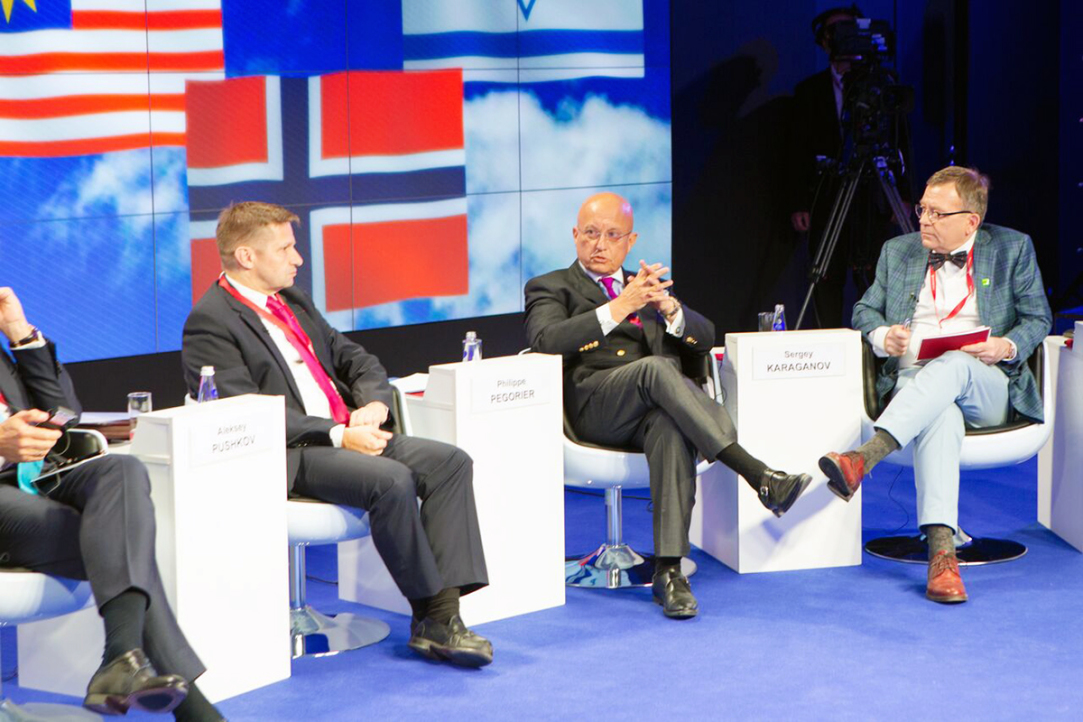Trust between Countries Starts with Common Interests

How to move from distrusting everything around you to new mutually beneficial alliances and partnerships? Can we achieve it in Eurasia? The participants of the St. Petersburg International Economic Forum discussed these and other questions at TV debates organized by RT. Sergey Karaganov, Dean of HSE Faculty of World Economy and International Affairs, believes that both Russia and Europe should turn together to the East.
It’s quite natural that countries protect their national interests, but what should they do when these interests come into conflict with each other? A lot of depends on the degree of trust in the relationship between these countries, and it seems that there is lack of trust in the global arena.
It’s useless to build relations that are based only on trust or values between countries, because the values are constantly changing within states and societies, notes Sergey Karaganov. It happened twenty years ago, when there were endless talks about trust, but in fact one party tried to diminish the political influence of the other.
However, relations can be built on common interests. ‘If you see that your interests coincide or have a common direction, then you can work together and build what we usually call ‘trust’,’ notes Sergey Karaganov. Participants from France and Germany recalled the experience of post-war reconciliation, cooperation and the following alliance between France and Germany, which has become the key to building and strengthening the EU.
According to Sergey Karaganov, the creation of a Eurasian partnership can now become this common goal. ‘If Europe and Russia decide not to turn to the East, or decide to compete with China and other Asian countries, rather than co-operate, then they are doomed to historical defeat,’ he warns. Five to seven years ago, it seemed that the future of the world was determined by the partnership between the US and China. But the wind has changed and now it blows forward in the sails of Russia, China and Europe (if Europe wants it to blow). And this opportunity should not be missed, says Sergey Karaganov.
See also:
Digital Inequality a Key Challenge on the Road to the Digital Future
Along with personal computers, the digital economy originated in the 1980s and quickly began to evolve, with information and technology becoming a bigger and bigger determinant of a country’s economic growth. A new stage of this evolution is now upon us, with explosive technology and data transformation now becoming one of the decisive factors of production.
HSE Develops Discussion Programme for World Festival of Youth and Students
An agreement relating to the programme was signed by HSE and Roscongress Foundation at the St Petersburg International Economic Forum.


